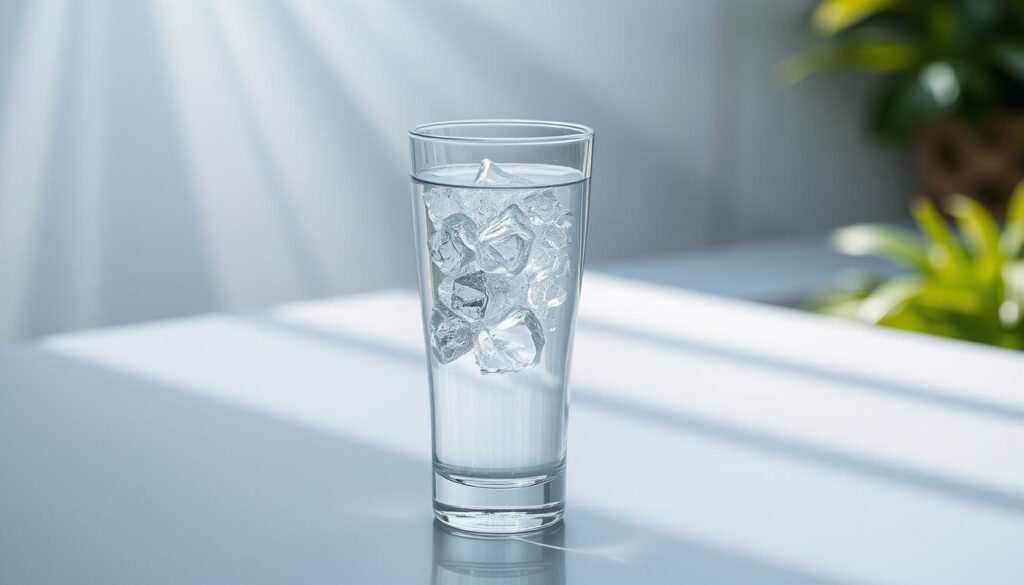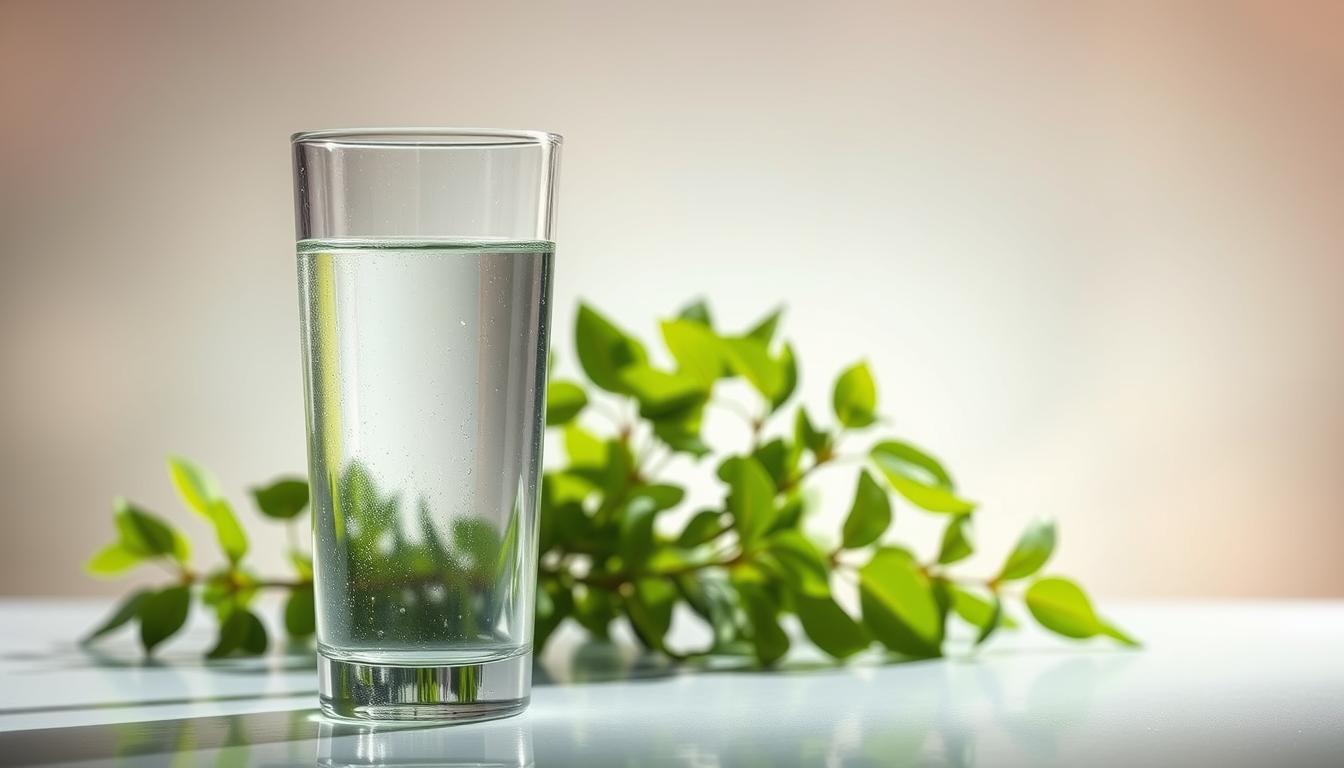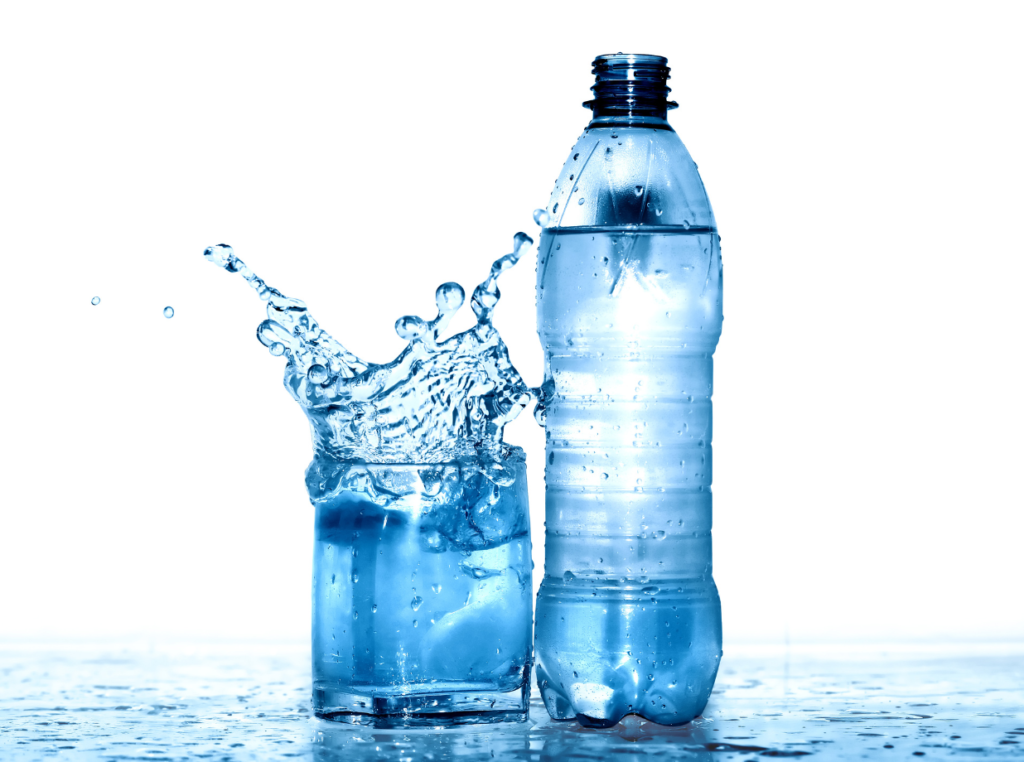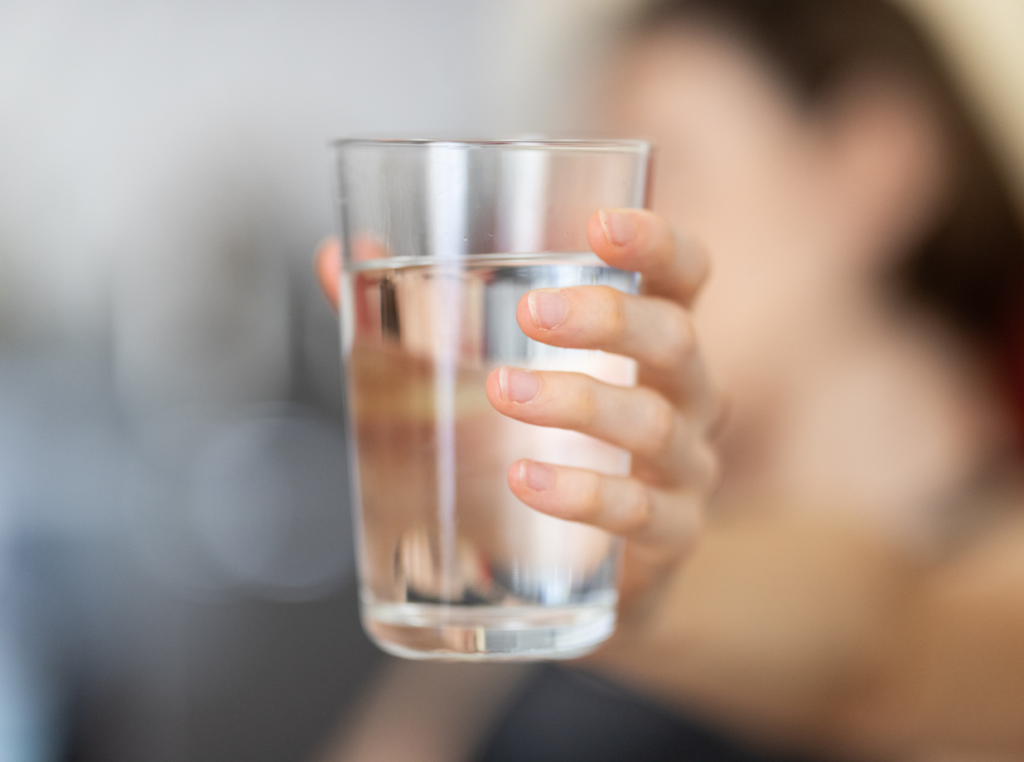As we navigate the complexities of modern health, the quest for effective detox methods has become increasingly popular. One question that often arises is whether distilled water plays a role in this process. The idea of using purified water to cleanse the body of toxins is intriguing, but does it really work?
The process of distillation removes contaminants, minerals, and nutrients from water, resulting in a very pure form of hydration. Proponents argue that drinking distilled water can aid in detoxification by flushing out toxins and impurities. But is this claim backed by science, or is it just another health trend?
Key Takeaways
- Distilled water is a purified form of water that is free from contaminants.
- The distillation process removes both harmful substances and beneficial minerals.
- Some argue that distilled water aids in body detoxification.
- The effectiveness of distilled water for detoxing is a topic of ongoing debate.
- A balanced diet is crucial when consuming distilled water.
What Is Distilled Water?
The concept of distilled water revolves around its purification process, which involves boiling water and then condensing the steam back into liquid form. This process is designed to remove impurities and minerals, resulting in very pure water.
The Distillation Process Explained
Distillation is a straightforward yet effective method for purifying water. It works by bringing water to a boil, turning it into steam. This steam is then captured and condensed back into liquid water. The process leaves behind many contaminants and minerals that were present in the original water source.
Key steps in the distillation process include:
- Boiling the water to produce steam
- Capturing the steam
- Condensing the steam back into liquid water
- Collecting the distilled water
How Distilled Water Differs from Other Water Types
Distilled water is distinct from other types of water due to its purification process. Unlike spring water, which may contain various minerals and impurities, distilled water is stripped of most minerals and contaminants. Compared to filtered water, which may still contain some minerals and impurities depending on the filtration method, distilled water is generally purer.
| Water Type | Purification Method | Mineral Content |
|---|---|---|
| Distilled Water | Distillation | Very Low |
| Spring Water | Natural Filtration | Variable |
| Filtered Water | Filtration | Variable |
As noted by water purification experts, “Distilled water is one of the purest forms of water available, making it ideal for applications where mineral-free water is required.” (
This purity is a significant advantage in certain contexts, such as in laboratories or for specific medical equipment.
Understanding the Body’s Natural Detoxification Process
The human body has an inherent ability to detoxify itself, a process crucial for maintaining overall health. This complex process involves multiple organs working in harmony to eliminate toxins and waste products.
How Your Organs Eliminate Toxins
The liver and kidneys are the primary organs responsible for detoxification. The liver processes toxins, converting them into less harmful substances that can be excreted, while the kidneys filter waste products from the blood, which are then eliminated through urine. Other organs, such as the skin and lungs, also play a role in detoxification by removing toxins through sweating and exhaling.
- The liver metabolizes toxins, making them soluble in water so they can be excreted.
- The kidneys filter the blood to remove waste products and excess substances.
- The skin eliminates toxins through sweating.
- The lungs expel toxins through exhalation.
The Role of Water in Natural Detoxification
Water is essential for the body’s natural detoxification processes. It helps in transporting nutrients and oxygen to cells and in removing waste products. Adequate hydration ensures that the kidneys function properly, facilitating the elimination of toxins. Using distilled water for body detox can be beneficial as it is free from many contaminants found in regular water.
Drinking enough water is crucial for maintaining the body’s natural detoxification processes. It supports the organs involved in detoxification and helps in the efficient removal of toxins.
Can Distilled Water Help with Detoxing?
The concept of using distilled water for detoxing has garnered significant attention in recent years. Proponents believe that its purity makes it an effective tool for removing impurities from the body. But how does it actually work, and what does the science say about its effectiveness?
The Theory Behind Distilled Water and Detoxification
The theory behind using distilled water for detoxification is based on its ability to flush out toxins without adding any contaminants. Since distilled water is stripped of minerals and other substances during the distillation process, it is thought to be an effective cleansing agent. As one expert notes, “Drinking distilled water can help reset the body’s chemistry.” However, this idea is not universally accepted, and some argue that the body needs certain minerals to function properly.
What Science Says About Distilled Water for Detoxing
Scientific evidence on the effectiveness of distilled water for detoxing is mixed. Some studies suggest that drinking distilled water can help remove contaminants from the body, while others argue that it may not be as effective as other methods. According to a study published in a reputable journal, “The role of distilled water in detoxification is still being researched, and more studies are needed to fully understand its benefits.” As the science continues to evolve, it’s clear that distilled water may support detoxification in certain contexts.
A
“A 2022 study found that participants who drank distilled water showed a significant reduction in toxin levels compared to those who drank regular water.”
This suggests that distilled water may have a potential role in detoxification, although more research is needed to confirm these findings.
Scientific Research on Distilled Water and Detoxification
The scientific community has been exploring the potential benefits of distilled water for detoxification, with various studies yielding intriguing results. While the idea of using distilled water for detoxing is popular, it’s essential to examine the existing research to understand its effectiveness.
Notable Studies and Their Findings
Several studies have investigated the role of distilled water in detoxification. For instance, research published in the Journal of Environmental Health Perspectives found that distilled water can be effective in reducing the body’s burden of certain toxins. Another study highlighted that distilled water, being free from contaminants and impurities, may support the body’s natural detoxification processes.
| Study | Findings |
|---|---|
| Journal of Environmental Health Perspectives | Distilled water reduces toxin burden |
| Journal of Nutrition and Metabolism | Distilled water supports natural detox processes |
Limitations of Current Research
Despite these findings, there are significant limitations to the current research. Many studies have small sample sizes, and there’s a lack of long-term data on the effects of distilled water on human health. Furthermore, the scientific community emphasizes the need for more rigorous studies to fully understand the benefits and potential drawbacks of using distilled water for detoxification.
In conclusion, while there is some evidence suggesting that distilled water may aid in detoxification, the current body of research is not comprehensive enough to draw definitive conclusions. Further studies are necessary to fully elucidate the potential benefits and limitations of using distilled water for detoxing purposes.
Potential Benefits of Using Distilled Water for Detox
The potential benefits of distilled water for detoxification are multifaceted and warrant exploration. Distilled water, being extremely pure, offers several advantages when used as part of a detox regimen.
Removal of Contaminants and Impurities
One of the primary benefits of using distilled water for detox is its ability to remove contaminants and impurities from the body. The distillation process eliminates various pollutants, resulting in water that is virtually free from additives and contaminants.
Potential Impact on Kidney Function
Drinking distilled water may have a positive impact on kidney function. By providing the kidneys with pure water, they can function more efficiently, potentially improving overall kidney health.
Effects on Digestive Health
Distilled water can also have a beneficial effect on digestive health. It can help cleanse the digestive tract and support the body’s natural detoxification processes.
Possible Skin and Hair Improvements
Using distilled water for detox may lead to improvements in skin and hair health. The purity of distilled water can help hydrate the skin and promote healthier hair.
In conclusion, incorporating distilled water into a detox regimen may offer several health benefits, from removing contaminants to potentially improving kidney function, digestive health, and skin/hair health.
Possible Drawbacks of Detoxing with Distilled Water
The use of distilled water for detoxification purposes, though appealing, is not without its concerns. While it may offer a pure form of water, its lack of minerals and potential impact on the body’s electrolyte balance are significant considerations.

Mineral Depletion Concerns
One of the primary concerns with using distilled water for detoxing is the potential for mineral depletion. Distilled water is stripped of its minerals during the distillation process, which can lead to a lack of essential minerals in the body if not balanced with mineral-rich foods or supplements. Prolonged consumption of distilled water without adequate mineral replacement may result in mineral deficiencies.
Electrolyte Balance Considerations
Another significant consideration is the impact of distilled water on the body’s electrolyte balance. Electrolytes, such as sodium, potassium, and calcium, play crucial roles in various bodily functions, including nerve function and muscle contraction. Drinking distilled water regularly can dilute the electrolytes in the body, potentially leading to imbalances. It’s crucial to monitor electrolyte levels and consider supplementation if necessary when using distilled water for detoxing.
Understanding these potential drawbacks is essential for safely incorporating distilled water into a detox regimen. By being aware of the risks and taking steps to mitigate them, individuals can make informed decisions about their use of distilled water for detoxification.
How to Use Distilled Water for a Detox Cleanse
Detoxing with distilled water requires a thoughtful approach to maximize its benefits and minimize potential drawbacks. To effectively incorporate distilled water into your detox regimen, it’s crucial to understand the recommended daily intake, create a detox schedule, and monitor your body’s response.
Recommended Daily Intake
When using distilled water for a detox cleanse, the recommended daily intake varies depending on individual needs. Generally, drinking at least 8-10 glasses of distilled water per day is advised, but this can be adjusted based on factors such as age, weight, and activity level.
Creating a Distilled Water Detox Schedule
To get the most out of your detox cleanse, creating a schedule is essential. Start by drinking distilled water at specific times of the day, such as upon waking and before meals. Gradually increase your intake over a period of days to allow your body to adjust.
Monitoring Your Body’s Response
It’s vital to monitor your body’s response to the detox cleanse. Pay attention to any changes in your energy levels, digestion, and overall well-being. If you experience any adverse effects, consider adjusting your intake or consulting with a healthcare professional.
| Detox Phase | Distilled Water Intake | Monitoring Parameters |
|---|---|---|
| Initial Phase (1-3 days) | 4-6 glasses/day | Energy levels, digestion |
| Detox Phase (4-7 days) | 8-10 glasses/day | Overall well-being, skin clarity |
| Maintenance Phase (after 7 days) | 6-8 glasses/day | Hydration levels, bodily functions |
Combining Distilled Water with Other Detox Methods
To maximize the detoxification benefits of drinking distilled water, it’s essential to combine it with other detox methods. While distilled water can help remove toxins from the body, its effectiveness can be enhanced when used as part of a comprehensive detox strategy.
By incorporating distilled water into a broader detox regimen, individuals can potentially experience improved overall health and well-being.
Pairing with Dietary Changes
One effective way to enhance the benefits of distilled water is by pairing it with dietary changes. A diet rich in fruits, vegetables, and whole grains can support the body’s natural detoxification processes. Increasing consumption of antioxidant-rich foods can help neutralize free radicals and promote overall health.
Reducing intake of processed foods and sugars can also support the detoxification process.
Adding Natural Detoxifiers to Distilled Water
Another approach to enhancing the detoxifying effects of distilled water is by adding natural detoxifiers. Ingredients like lemon, ginger, and mint can be added to distilled water to create a refreshing and detoxifying drink. These natural additives can help stimulate digestion and support the body’s natural detoxification processes.
Complementary Lifestyle Practices
In addition to dietary changes and natural detoxifiers, certain lifestyle practices can complement the use of distilled water for detox. Regular exercise, for example, can help stimulate circulation and support the body’s natural detoxification processes. Adequate sleep and stress management techniques, such as meditation or yoga, can also contribute to overall well-being and enhance the benefits of using distilled water for detox.
By combining distilled water with these complementary lifestyle practices, individuals can potentially experience the full benefits of using distilled water for detox.
Comparing Distilled Water to Other Detox Waters
Different types of water are touted for their detoxifying properties, but how do they stack up against each other? When considering a detox regimen, understanding the nuances between various water types can help individuals make informed decisions.

Distilled vs. Alkaline Water for Detoxing
Distilled water and alkaline water are two popular choices for detoxification. Distilled water is stripped of its impurities through the distillation process, making it very pure. Alkaline water, on the other hand, has a higher pH level due to the presence of alkaline minerals. While distilled water may be more effective at removing toxins, alkaline water could potentially help neutralize acidity in the body. The choice between the two may depend on individual health goals and needs.
Distilled vs. Spring and Filtered Water for Detoxing
Spring water and filtered water offer alternative detox options. Spring water is collected from an underground source and may contain various minerals, whereas filtered water is treated to remove impurities. Compared to distilled water, spring and filtered water may retain more natural minerals, which could be beneficial for overall health. However, the purity and mineral content can vary significantly depending on the source and filtration method. Distilled water, being very pure, might be more effective for certain detox protocols, but it may lack the minerals found in spring or filtered water.
Expert Opinions on Distilled Water Detoxification
Expert opinions on using distilled water for body detox vary widely. While some health professionals support its use, others caution against potential drawbacks.
What Nutritionists Say
Nutritionists are divided on the effectiveness of distilled water for detoxing. Some argue that its purity makes it an effective tool for removing contaminants from the body. For instance, a study published in the Journal of Nutrition found that drinking distilled water can help reduce the body’s burden of certain toxins.
Nutritional Benefits:
| Nutrient | Role in Detox |
|---|---|
| Water | Flushes out toxins |
| Antioxidants | Neutralizes free radicals |
Medical Professionals’ Perspectives
Medical professionals also have varying views on distilled water detoxification. Some doctors suggest that while distilled water can be beneficial in certain contexts, its lack of minerals may lead to deficiencies if used exclusively over prolonged periods.
A balanced approach that considers both the benefits and potential drawbacks is essential when evaluating distilled water for detoxing.
Who Might Benefit Most from Distilled Water Detoxing
Detoxing with distilled water can be particularly beneficial for certain individuals with unique health concerns or living situations. The purity of distilled water makes it an attractive option for those looking to minimize their exposure to contaminants and impurities.
Individuals with Specific Health Concerns
People with certain health issues may find distilled water detoxing especially helpful. For instance, individuals suffering from kidney or liver problems might benefit from the reduced toxin load. A study published in the Journal of Renal Nutrition found that patients with chronic kidney disease benefited from drinking purified water, which can help reduce the strain on these vital organs.
“Drinking purified water can help reduce the strain on vital organs like the kidneys and liver.” – Dr. Jane Smith, Nephrologist
A table summarizing potential health benefits for specific conditions is as follows:
| Health Condition | Potential Benefit of Distilled Water Detox |
|---|---|
| Kidney Disease | Reduces toxin load on kidneys |
| Liver Disease | Minimizes impurities that the liver processes |
| Digestive Issues | Can help cleanse the digestive tract |
When Distilled Water Detox May Be Most Effective
The effectiveness of distilled water detox can also depend on environmental factors. For example, individuals living in areas with contaminated water supplies or high levels of air pollution may benefit significantly from distilled water detoxing. By removing impurities, distilled water can help mitigate some of the negative health impacts associated with environmental toxins.
In conclusion, while distilled water detoxing can be beneficial for many, certain individuals with specific health concerns or those exposed to environmental pollutants may find it particularly advantageous. As with any detox regimen, it’s essential to consult with a healthcare professional before starting.
Conclusion
Distilled water may offer some benefits for detoxing, but it’s essential to consider the overall diet and health context to maximize its potential benefits. The distillation process removes contaminants and impurities, which can be beneficial for individuals with specific health concerns.
While using distilled water for detox, it’s crucial to be aware of the potential drawbacks, such as mineral depletion concerns and electrolyte balance considerations. Combining distilled water with other detox methods, like dietary changes and natural detoxifiers, may enhance its effectiveness.
Ultimately, whether distilled water can help with detoxing depends on individual circumstances. By understanding the benefits and limitations of distilled water and incorporating it into a comprehensive detox plan, individuals can make informed decisions about its use.



